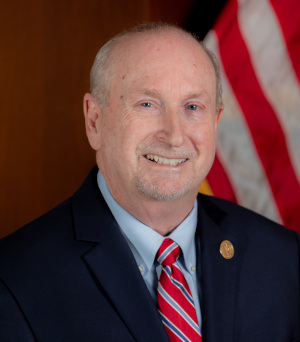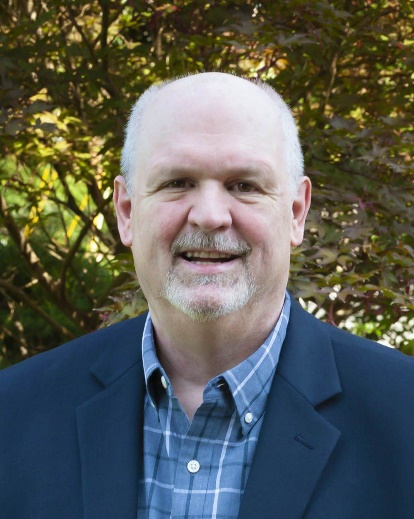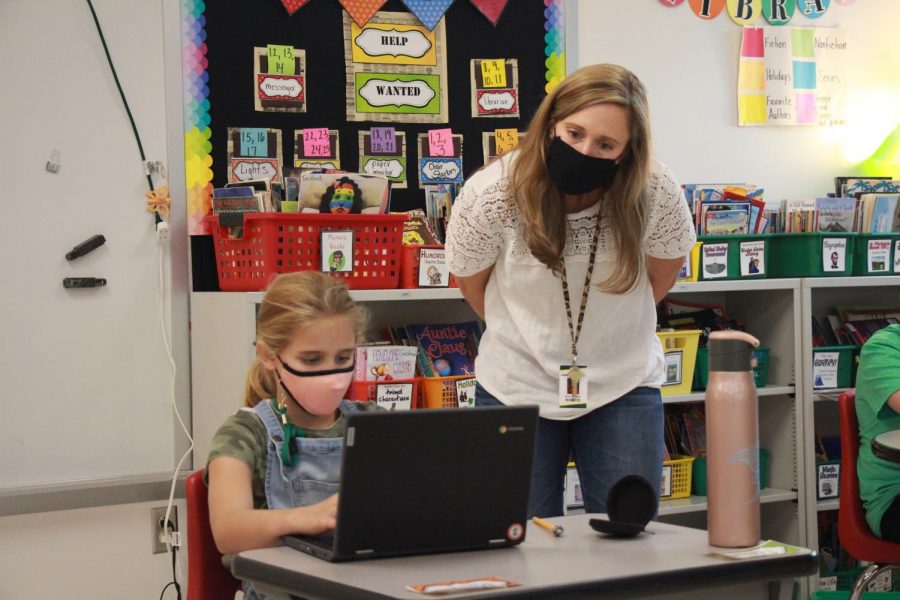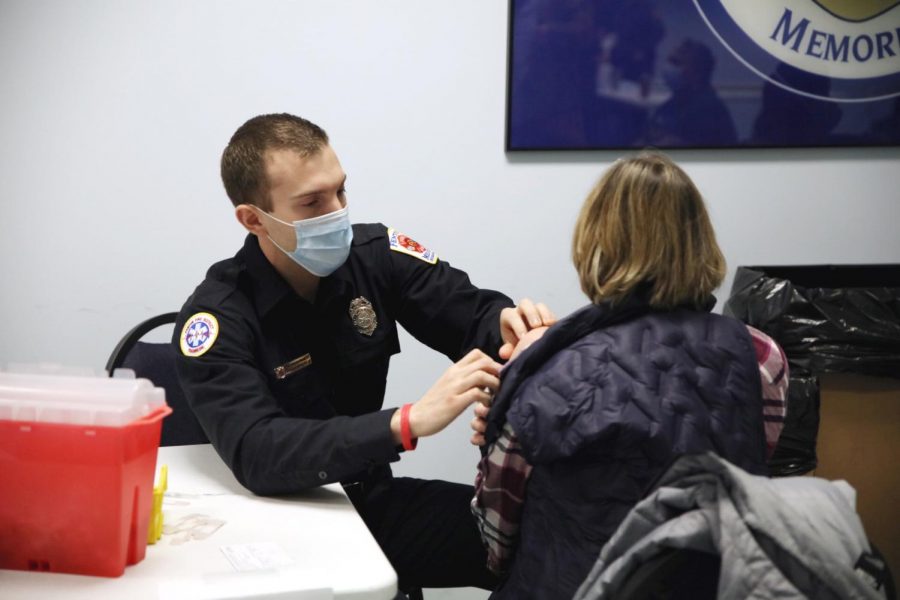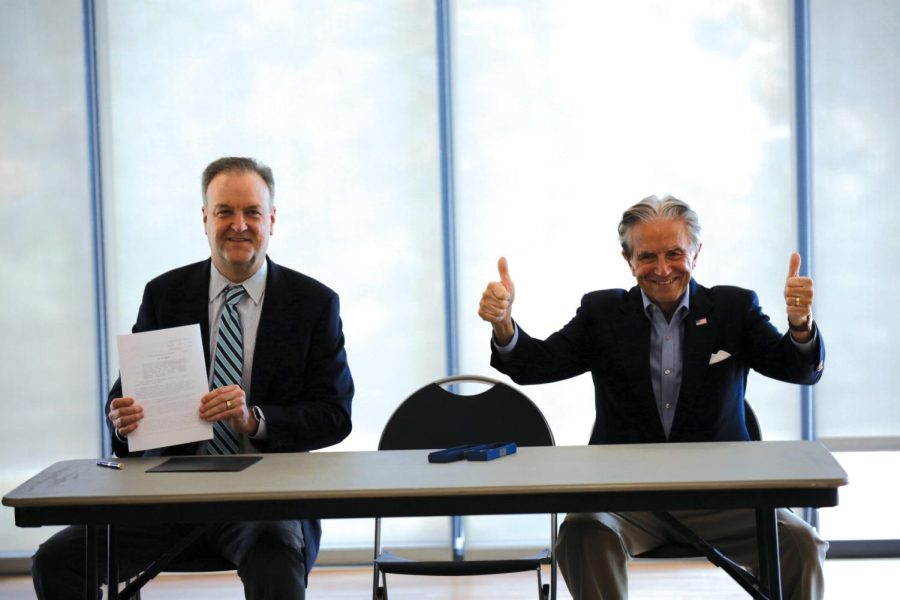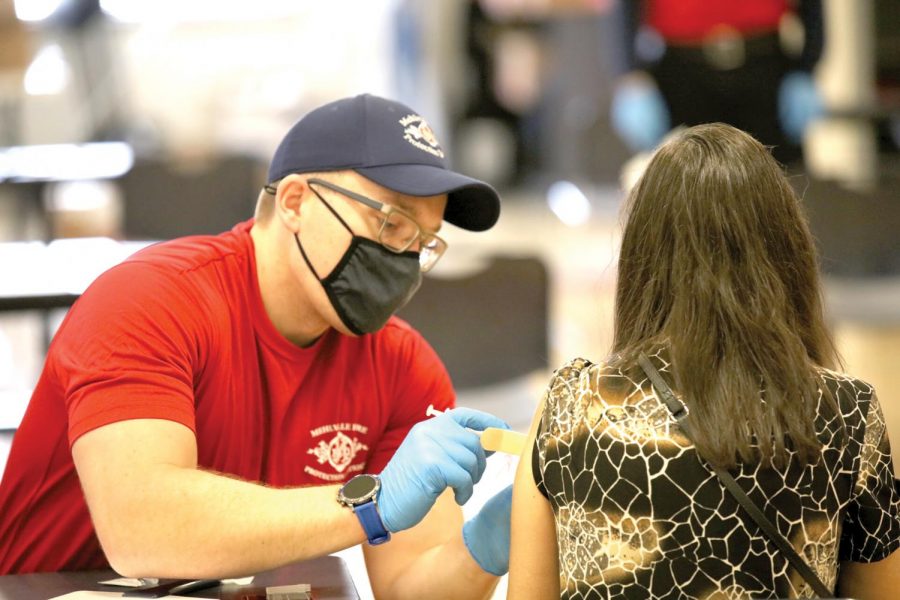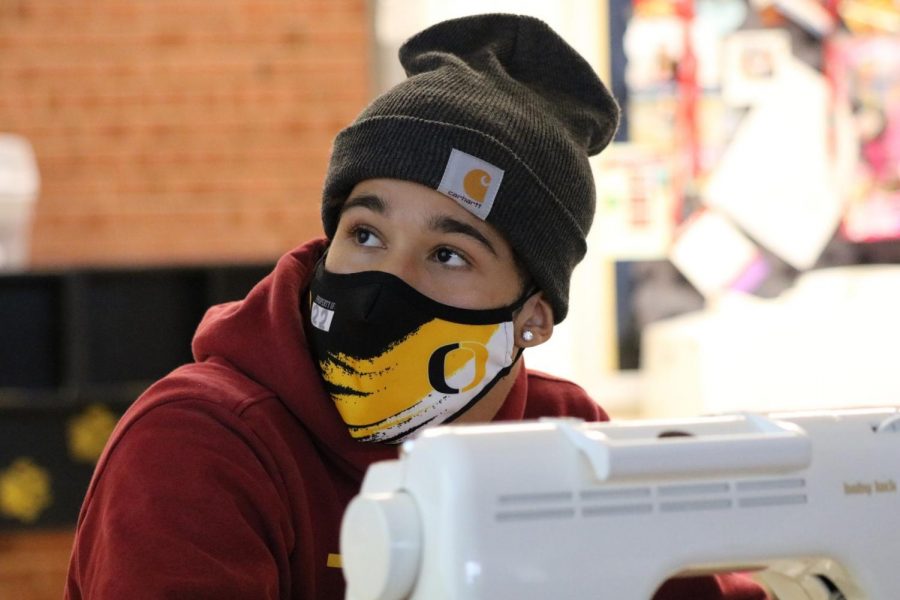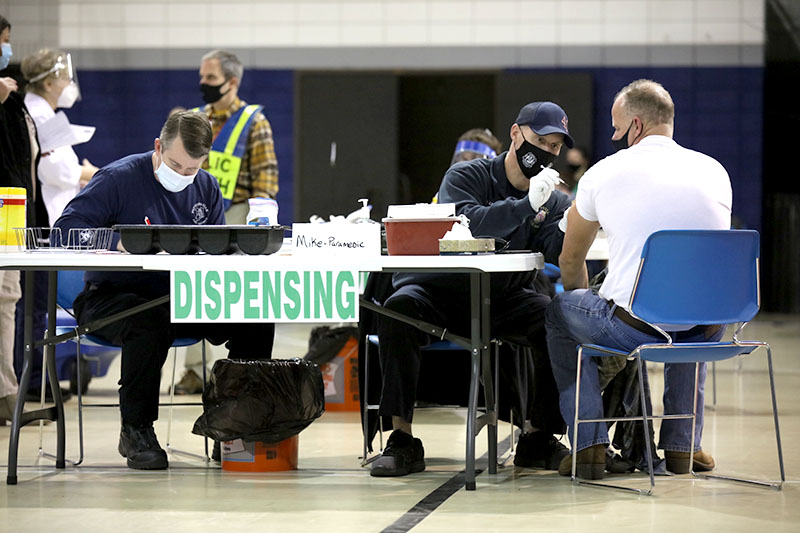For people released from prison or jail, returning to their communities is a challenge in the best of times. Often, employers don’t want to hire them. A criminal record makes it hard to find housing. Many people have lost touch with family members.
The coronavirus pandemic has magnified these challenges. Now, jobs are more scarce, and people are isolated.
Normally, the Missouri Department of Corrections partners with local community groups and state agencies to help prepare people for release from prison and provide support as they rejoin their communities. In many cases, people from these groups come into prisons to work with people face-to-face.
But after Missouri identified its first case of COVID-19 in St. Louis County in March, the state suspended these in-person services. It was one of several measures meant to keep the coronavirus out of state prisons.
Likewise, re-entry programs on the outside are facing logistical challenges that make their work more difficult. Participating in virtual programs — a necessity during the pandemic — isn’t always an option for people recently released from prison, as they often lack smartphones and other technology.
Limited access in prisons
Ken Chapman, women’s/offender re-entry program manager for the Department of Corrections, said re-entry work has continued despite the ongoing disruption from COVID-19.
Prisoners continue to receive support by phone, Chapman said. This includes services like substance use counseling and discussions about employment opportunities.
“So services continue, they’re just different,” he said.
A few of Missouri’s prisons have both the technology and infrastructure such as webcams that currently allow for virtual meetings between individual prisoners and people providing re-entry services.
Chapman said the department is working to outfit all prisons with the technology to provide programming that was available before COVID-19. That includes services for larger groups, such as employment readiness classes, vocational training and advising on career paths, he said.
At some prisons where the state’s mass testing for COVID-19 has identified no cases, the state is reintroducing limited family visits. Chapman said the department is also determining how some in-person re-entry programs can resume with safety measures in place. Prisons won’t allow in-person re-entry work to begin unless providers get COVID-19 tests, he said.
“If you don’t want to be tested … that’s OK, we can continue on with telephone calls,” he said.
If providers decide to be tested, they’ll still need to wear masks and practice social distancing when inside prisons, Chapman said.
“So if you’re coming in to teach a class, and you’re used to teaching 20 offenders? Not going to happen,” he said. “You’re going to have to teach however many can be placed in that room with 6 feet of social distancing.”
In-person re-entry activities remain suspended as of Aug. 5.
‘Unable to deliver those services’
While some reentry services continue by phone, others were forced to stop entirely.
The Missouri Office of Workforce Development partners with the prison system to provide things like pre-release apprenticeships, training, job search assistance and resume building, said Director Mardy Leathers.
“But unfortunately, the nature of those services do require in-person, onsite (work),” Leathers said. “That was really the beauty of the partnership and where we saw really exciting and impactful results, but COVID has definitely made that a challenge for us.”
“We’ve unfortunately had to pause, and we are unable to deliver those services,” he said.
Leathers said job centers across the state were closed because of the pandemic, not only those inside prison centers. Conversations about how re-entry work can safely start again are ongoing, and the intent is to restart the work as quickly as possible, he said.
The Missouri Department of Elementary and Secondary Education’s Vocational Rehabilitation division works with prisoners nearing release who have disabilities that present barriers to employment.
Kim Gee, the youth and program services manager with Vocational Rehabilitation, said COVID-19 halted some of their work to help people find jobs.
“We had folks around the state who had been going into the facilities to do presentations to individuals who were getting ready to be released, and so they haven’t been able to go into the facilities,” Gee said.
Despite this, Gee said the Vocational Rehabilitation reentry team is finding ways to get their message to people in prison.
“We are in the process of developing a video that can be shared with folks behind the walls,” Gee said.
The re-entry team is also able to open cases virtually for prisoners who are close to being released, Gee said. This includes conducting interviews via telephone and developing vocational goals.
Challenges after release
Laura Toledo is the executive director of Center for Women in Transition in St. Louis, which provides housing and other services for people returning to their community after incarceration. She said the virus has forced them to deliver many of their services virtually, though they’ve recently found ways to do some in-person work again with safety precautions.
“When you have a housing program, we do have staff on site and that never stopped,” she said. “But life skills, vocational services, peer support, counseling, we try to do that virtually as much as possible.”
Toledo said the organization was able to secure technology like tablets for clients to use.
“We were just lucky in that somebody donated a box of smartphones, and that’s where we started,” she said. “So everybody was able to participate in video chats through their phones, and that worked pretty well, I would say.”
Another donor bought eight tablets, and a COVID-19 emergency grant let the organization buy more tablets.
Rev. Lynn Mims runs A New Cornerstone Inc, a St. Louis-based nonprofit that works with people both before and after their release from prison.
Mims said the nonprofit has switched to mostly virtual programming and telephone conferencing. But sometimes it just isn’t possible for former prisoners to participate in virtual programs, even when they’re available.
“They don’t have telephones,” Mims said. “Most of them, you know, they can’t afford a cell phone or a smartphone to get on a virtual program like Facebook Live or YouTube or Zoom or whatever, so that makes it tough for them.”
Mims also said the coronavirus has contributed to relapses among some clients with substance use disorders. Groups like Narcotics Anonymous and Alcoholics Anonymous have also been forced to adopt virtual formats, he said.
“That makes it difficult to get them into treatment, because once they relapse they stop taking telephone calls and things like that,” Mims said. “So they’ve gone back to using drugs, and that’s because they’ve been isolated and confined by the (virus).”
Susie Roling, the director of operations at Journey To New Life in Kansas City, said there’s been an increased need for the organization’s services because of the pandemic.
“We have graduates of our program … that have had steady jobs for a year, year and a half, that are now unemployed,” she said. “So we have received requests for rental assistance for folks that have been unemployed, and we’ve actually been given some COVID funding from the city and we’ve been able to help people through that.”
April Foster, who works with Toledo at Center for Women in Transition, said everything is drastically different than it was just a few months ago.
“There’s honestly sometimes … a sense of feeling really helpless because I don’t know what advice to give people when they don’t qualify for our services or we just don’t have room to accommodate them,” Foster said. “Our communities are doing the best they can to start being responsive to those needs, but there’s some lag time there.”
Finding employment
Finding a job in the middle of the pandemic is another major challenge for former prisoners. Roling said the economic downturn and increased unemployment rate have impacted Journey to New Life’s clients significantly.
“Our clients haven’t worked long enough, in being out of prison, to receive unemployment (benefits),” she said. “So they’re having trouble obtaining work, and then they do not have the option for unemployment.”
Lisa Cohn is the program manager of St. Louis University’s Transformative Workforce Academy, a program that works to find employment for people who’ve served time in prison or jail or who are on probation.
The Transformative Workforce Academy hosts job fairs and also has an online portal for job listings. The academy shifted its typical in-person job fair to a virtual job fair in early July.
Before the pandemic, unemployment was low, Cohn said.
“There were so many employers who were willing to consider hiring people who were justice-involved for the first time ever,” Cohn said. “But then obviously that changed overnight when the pandemic hit and the economy got a lot worse.”
Cohn said the sudden rise in unemployment meant employers who didn’t already want to hire people with criminal records were less likely to consider it. She said that made things more challenging, as did the need to hold the fair virtually.
“When things went virtual, it was certainly difficult to adapt just because we’re working with a population that is not super digitally literate,” Cohn said. “They’re often coming out of long stays in prison where they haven’t had access to technology, so some don’t know how to use it well.”
Fortunately, the virtual fair went well, Cohn said.
“I worked really hard to make it an event that could be accessible, basically by making it so job seekers would pre-record video presentations that we would play for employers,” Cohn said. “So they didn’t have to be online at a specific time to attend the fair or even have a computer.”
While there were fewer employers and job seekers than normal, pre-recording the videos allowed job seekers to put their best foot forward. Based on the initial results, Cohn said it looks like the virtual fair may be even more successful than previous in-person fairs.
“So far every single person who attended the job fair has at least one employer who wanted to follow up with them, and the average has been eight employers interested in each job seeker,” she said.
‘Be patient’
For people facing the challenges of re-entry during the pandemic, many people who work in the re-entry field encourage former prisoners to be patient.
“Be patient because eventually you will get the break you’re looking for,” Mims said.
He also recommended finding a program, a church, or some type of support system.
“A lot of the time, things are not going to happen as fast as you want them to. And so ‘don’t panic’ means stay out of trouble, stay clean, and be sure of yourself,” he said.
Roling advised people to also go wherever they will have the most support, whether that’s from family or their community.
“Have some patience and understanding that it’s not going to be as fast or as easy,” Toledo said. “Just be mindful that it may take you longer to get a job. It’s going to be stressful.”
Like what you’ve seen from the Missouri Information Corps? Want to help us keep covering Missouri news? Donate here: https://mizzougivedirect.missouri.edu/fund.aspx?item_id=713







